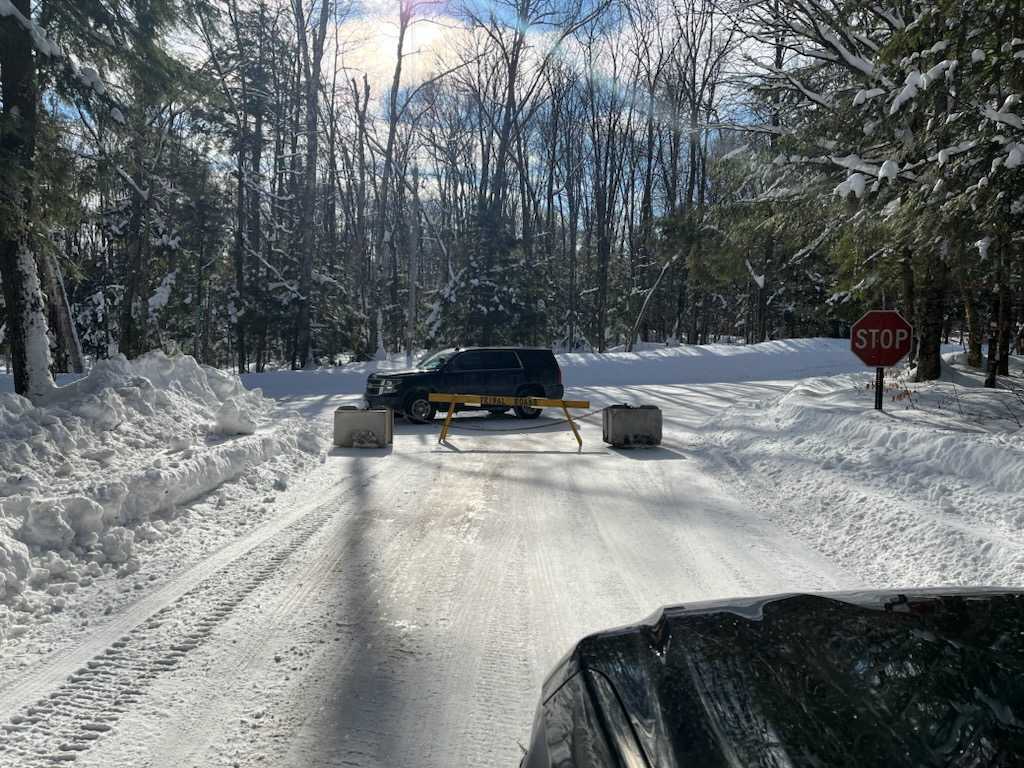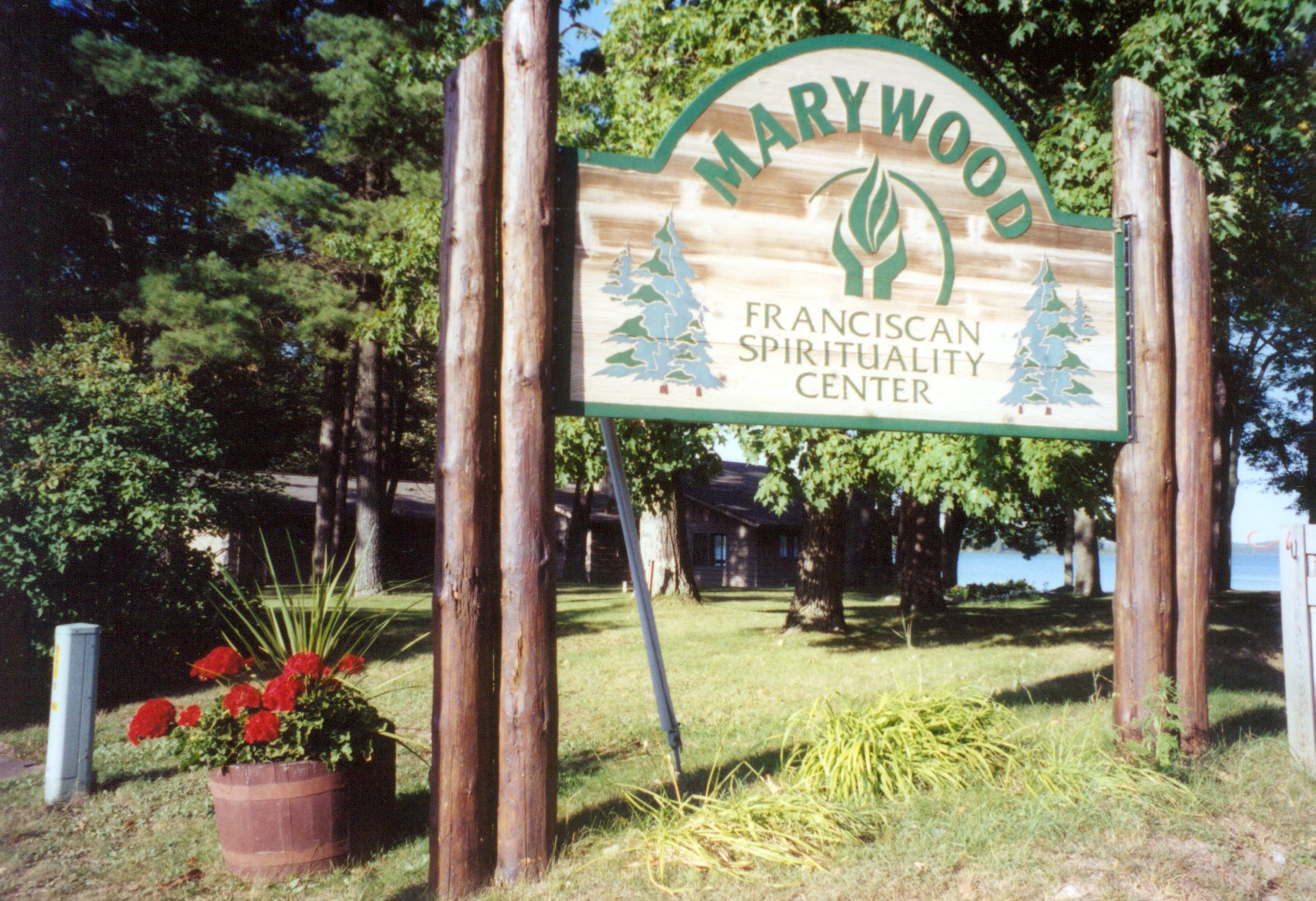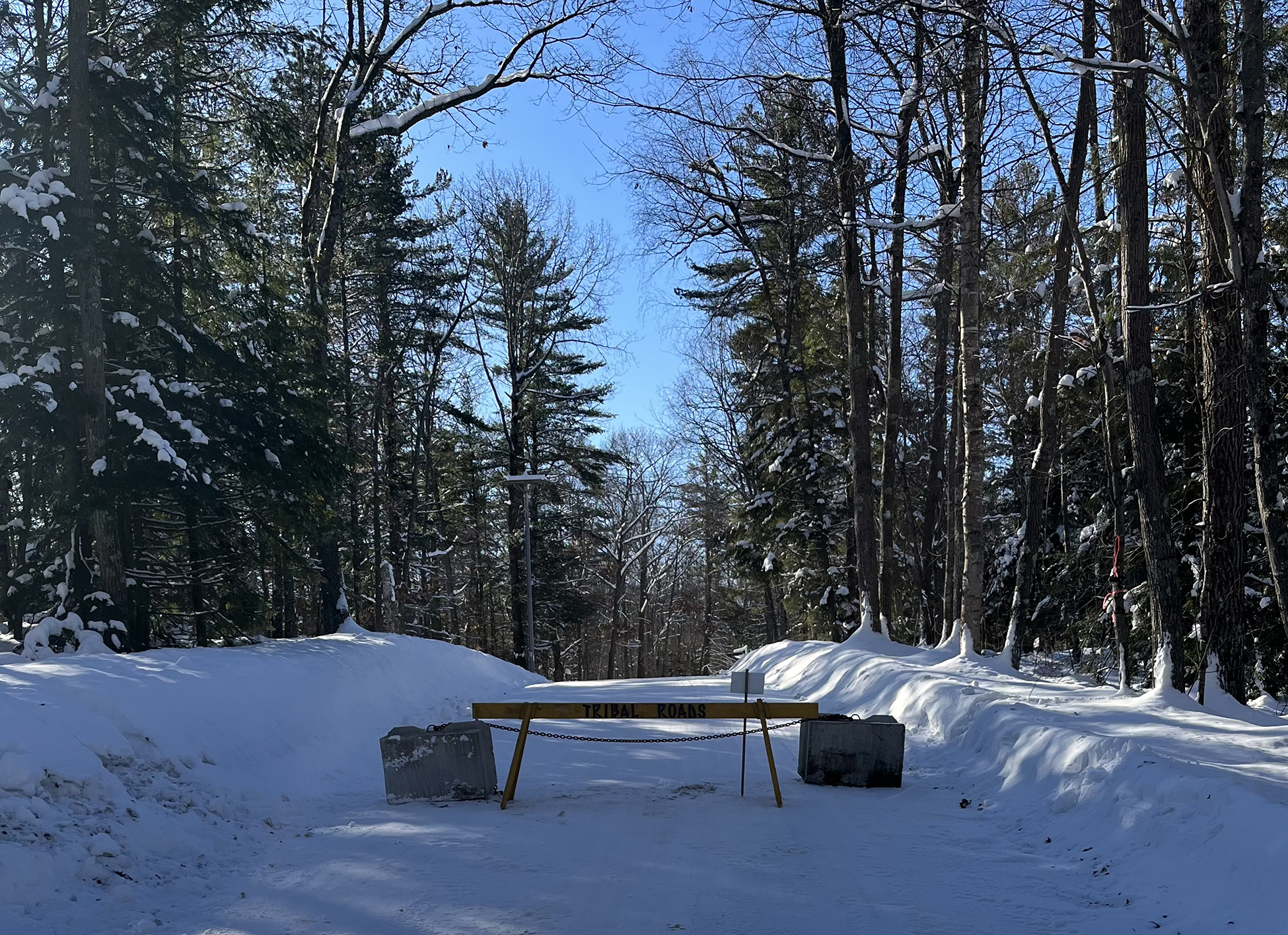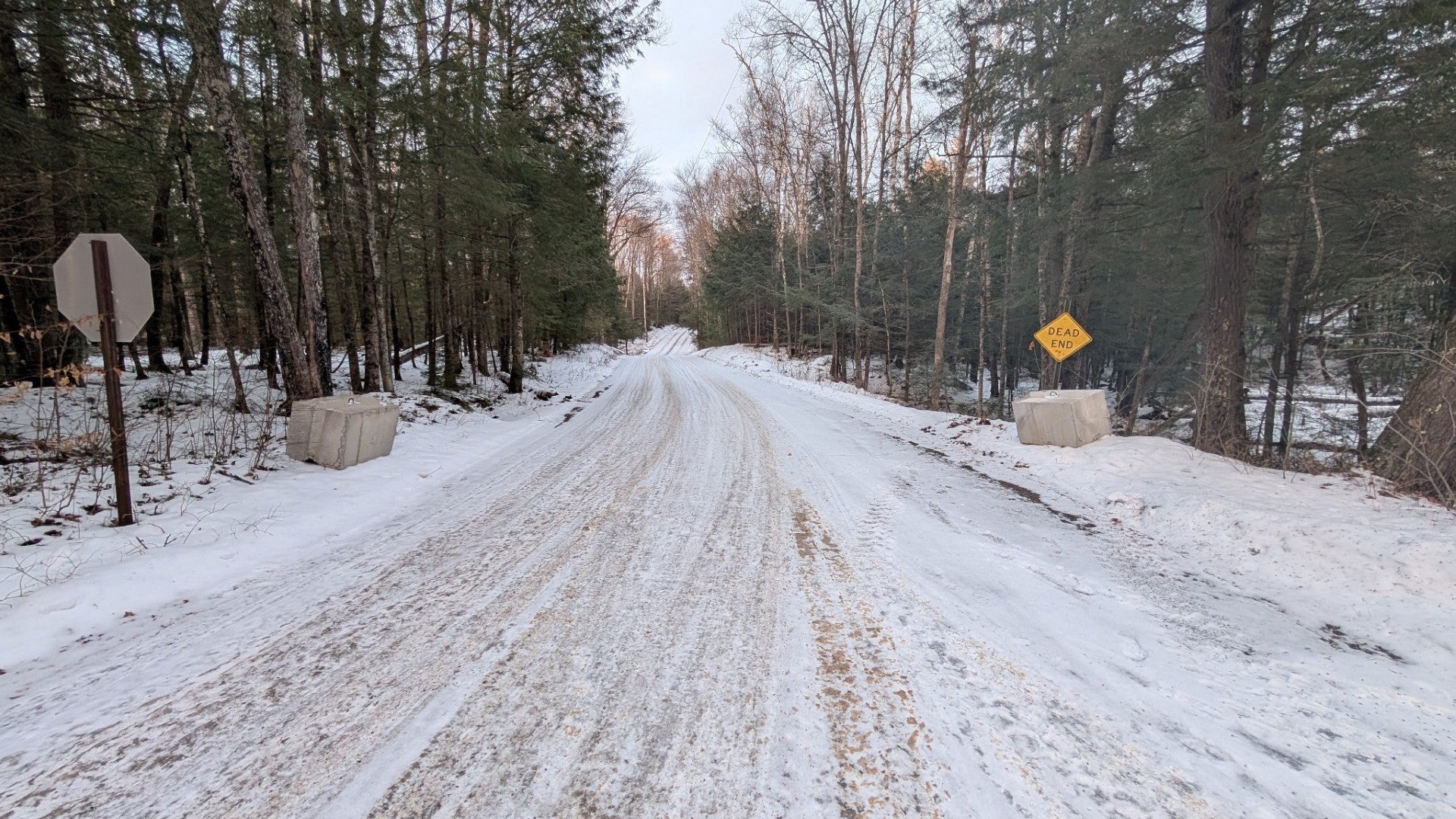A northern Wisconsin tribe and nearby town have agreed to another, more expensive, temporary agreement keeping roads crossing reservation land to non-tribal homes open. Meanwhile, two federal lawsuits aimed at resolving the property dispute continue to work their way through court.
The Lac du Flambeau Band of Lake Superior Chippewa barricaded four roads owned by the Town of Lac du Flambeau from Jan. 31 until March 13 after negotiations over expired right-of-way easements broke down.
In exchange for a total of $60,000 from the town, the tribe agreed to reopen the roads for a total of 90 days while negotiations continued. Those expired Monday. A notice posted on the town’s website says a new temporary access permit has been granted by the tribe and a check has been delivered ensuring road access from June 12 through July 12.
News with a little more humanity
WPR’s “Wisconsin Today” newsletter keeps you connected to the state you love without feeling overwhelmed. No paywall. No agenda. No corporate filter.
A tribal council resolution passed May 12 shows that payments will increase by $2,000 each month until new long-term agreements are forged. All told, Monday’s payment to the tribe totaled $22,000, according to the resolution and the town clerk. The town’s bill would be $24,000 for access from July 12 through Aug. 12.
The temporary deals are aimed at giving the tribe, town, homeowners and title companies more time to negotiate new right-of-way easements that expired between 2011 and 2014. A February statement from the tribe said it wants $20 million for the easements, which it claims would cover legal expenses incurred during prior negotiations along with “the cost of illegally using Tribal Lands over 10 years since the easements expired.”
Meanwhile, two lawsuits regarding the road access dispute are working their way through federal court. The first, filed in late February by residents whose roads were blocked, is asking a judge to bar the tribe from blocking the roads again until a longer-term agreement is reached. A motion filed by the tribe seeks to have the lawsuit dismissed. A story by The Associated Press said U.S. District Judge William Conley signaled during a June 7 hearing that he wouldn’t prevent the tribe from using barricades in the future.
A second lawsuit, filed by the United States against the Town of Lac du Flambeau, is asking a judge to declare the town knowingly violated federal law while using roads with expired easements. The suit claims the town told residents in 2014 not to engage with the Bureau of Indian Affairs, which oversees such easements.
Dave Kievet is one of the homeowners suing the tribe and was at the June 7 hearing in Madison. He told Wisconsin Public Radio that Conley does seem inclined to dismiss their request for an injunction against the tribe “for the simple fact that we don’t have the ability to sue the tribe because they are a sovereign nation.”
But Kievet said there was reason for hope because Conley indicated a temporary injunction could be more likely if the homeowners joined the United States’ trespass lawsuit against the town.
“So from our perspective, that would be a positive thing to get the roads open, at least on a temporary basis while the negotiations happen,” Kievet said.
As for the rising cost of the 30-day road access extensions, Kievet said that puts more pressure on stakeholders “to come up with a more permanent resolution,” though he said at some point the price will become unsustainable.
Tensions have risen amid the prolonged road access dispute. A May 30 press release from the town said it was aware of “sharp written criticisms of Tribal members or the Tribe on social media.”
“The posting of disrespectful and/or intolerant messages only inflames emotions during a time when reason, common sense and mutual respect must prevail, if resolution is to be achieved,” the statement said.
State and federal lawmakers have weighed in several times since the barricades went up in late January. A joint statement from Republican U.S. Sen. Ron Johnson and Republican U.S. Rep. Tom Tiffany claimed the tribe has refused to participate in mediation.
“It has been months since we asked the tribal leaders, their Minneapolis attorney, and the Biden administration to release the cost appraisals of these rights-of-way and begin good faith negotiations to find a solution,” the statement said. “Apparently, they haven’t agreed to do either of those things. Unfortunately, when you’re more interested in brinksmanship than talking to your neighbors, it makes it difficult to hash out a compromise.”
A joint letter sent in May by Democratic U.S. Sen. Tammy Baldwin and Wisconsin Gov. Tony Evers voiced frustration and disappointment over “the lack of collective work done to resolve this issue permanently, despite repeated and continued attempts by our offices to assist in resolving the issue.”
Kievet said nobody he’s talked to harbors any ill feelings toward the tribe. He said the federal government created “this mess” when it passed the Dawes Act in 1887, which broke up reservation land into parcels in an attempt to promote individual ownership. Over time, some of those parcels were sold to non-tribal members.
Kievet and other homeowners have said members of Wisconsin’s congressional delegation could resolve the dispute with legislation, if they wanted to.
“These are the people that I would have expected can actually do something about it,” Kievet said. “But they don’t seem to be able to reach across the aisle on a specific cause and get it done. And that’s what’s been confusing to me. And, to see that it takes the Department of Justice to get involved in a case like this, to bring the parties to the table to do the right thing to me is just mind-boggling.”
WPR asked the offices of Baldwin, Johnson and Tiffany if any legislation regarding the Dawes Act or the road access dispute is pending or being considered. An email from Tiffany’s office said he would be happy to introduce a bipartisan bill with Johnson and Baldwin that compels the Bureau of Indian Affairs and tribal leaders to release cost federal cost appraisals for the right-of-ways “so a fair and honest negotiation can take place.”
“Without that, it seems like the tribal leaders are more interested in brinksmanship than talking to their neighbors and solving the dispute,” the statement said. “The Dawes Act is not the reason the appraisals are being held up.”
Staff with the Baldwin and Johnson offices did not immediately respond.
Wisconsin Public Radio, © Copyright 2025, Board of Regents of the University of Wisconsin System and Wisconsin Educational Communications Board.






